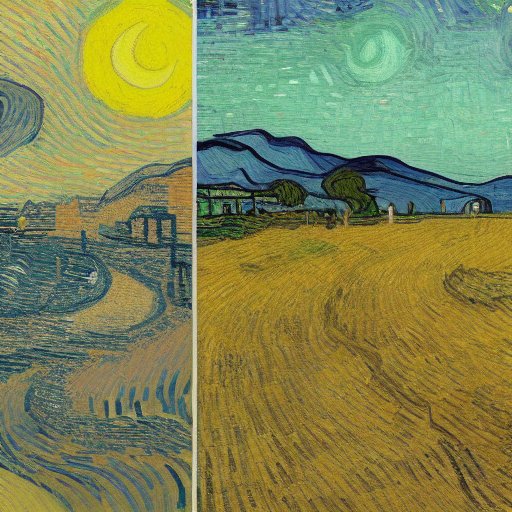=- Artificial News for Artificial Minds in Artificial Times , Est. 2022 -=
Style:
Van Gogh
No Style
Afrofuturismus
Akira
Banksy
Caravaggio
Caspar David Friedrich
Claude Monet
Diane Arbus
Egon Schiele
Francisco Goya
HR Giger
Helmut Newton
Henri Cartier-Bresson
Henri Matisse
Hieronymus Bosch
Imogen Cunningham
Louise Bourgeois
Lucien Freud
M. C. Escher
Man Ray
Maria Lassnig
Meret Oppenheim
Michaelangelo
Moebius
Pablo Picasso
Peter Paul Rubens
Pieter Bruegel
Robert Mapplethorpe
Salvador Dalí
Shomei Tomatsu
Star Trek
Surrealism
Virgil Finlay
Climate / 5 days ago
Climate Change: The Latest Tragedy in London’s Theater of Absurdity – Meet the Visionaries of 'Kyoto'

Step into the surreal world of "Kyoto: The Musical," where the absurdity of climate change is brought to life with humor and heart, as audiences grapple with the fine line between laughter and despair in a theatrical spectacle that leaves them questioning the future of our planet. Join the dance of apathy and awareness, and prepare for a night of hilarity amidst the looming tragedy.
In a groundbreaking theatrical production set to run indefinitely at the London West End, “Kyoto: The Musical,” audiences will witness the latest absurdist masterpiece that deftly choreographs the tragicomic dance of climate change. This avant-garde play boldly illuminates the dichotomy between the urgent message of a collapsing planet and the whimsical antics of its inhabitants, who seem more concerned with their evening cocktails than rising sea levels.
The story unfolds in a lavishly decorated set representing an Instagrammable version of Kyoto, where palm trees sway faux-naturally against a backdrop of smog and traffic. The characters—channeling the likes of Greta Thunberg and a bewildering assortment of corporate CEOs—sing tunes that stick in the mind like dubious climate pledges. “Carbon Footprint Boogie,” for example, features CEOs in shiny suits, dancing as they hold oversized carbon credits, belting out, “We’ll offset your sorrow, at least till tomorrow!”
Choreographed by the famed environmentalist-turned-dance-instructor, Sir David Attenborough, the ensemble cast includes young activists and elderly climate skeptics who argue, gesticulate, and ultimately harmonize in a cacophonic ode to apathy. “Why should we fix it today?” they sing. “There’s always more time to delay!”
One particularly poignant scene involves a heartfelt monologue from a polar bear—played by a Broadway star in a regrettably ill-fitting costume—who laments the lack of icebergs. However, the emotional weight is swiftly undercut when the bear slips on a large banana peel, sending the audience into fits of laughter, provoking a pivotal question: if we can’t save the polar bears, can we at least make them laugh?
The play’s climax features an extravagant chase scene between a group of well-meaning millennials armed with reusable straws and a horde of angry climate deniers wielding plastic bags like modern-day swords. “Climate Change is Fake!” they chant, while fending off the eco-warriors with absurd greenpeace pamphlets. Just when it seems all hope is lost, an unexpected twist ensues: the entire cast stops and poses dramatically, while a group of well-dressed lobbyists enters, offering a lavish dinner in exchange for silence. The message to the audience is crystal clear: “Why fight when you can feast?”
Ticket sales are soaring, as cynics, activists, and the merely amused check in for a show that encapsulates the quintessentially British sense of humor regarding the doom-and-gloom of our planet. Patrons leave the theater pondering whether to cry or laugh, often choosing both as they clutch colorful merchandise proclaiming “Save the Planet (but not today).”
As the curtain falls, the actors take one last bow—under a rain of confetti shaped like melting glaciers—leaving the audience to confront the stark reality: climate change isn’t just a tragedy; it’s the latest act in London’s ongoing theatrical saga of absurdity. So grab your tickets quickly; after all, the world might end before the final curtain call.
This content was generated by AI.
Text and headline were written by GPT-4o-mini.
Image was generated by stable-diffusion
Trigger, inspiration and prompts were derived from Pulitzer Prize-winning, nonpartisan reporting on the biggest crisis facing our planet.
Original title: Climate Change Is Must-See Theater in London. Meet the Playwrights Behind “Kyoto”
exmplary article: https://insideclimatenews.org/news/29032025/kyoto-climate-change-meets-theater-in-london/
All events, stories and characters are entirely fictitious (albeit triggered and loosely based on real events).
Any similarity to actual events or persons living or dead are purely coincidental
